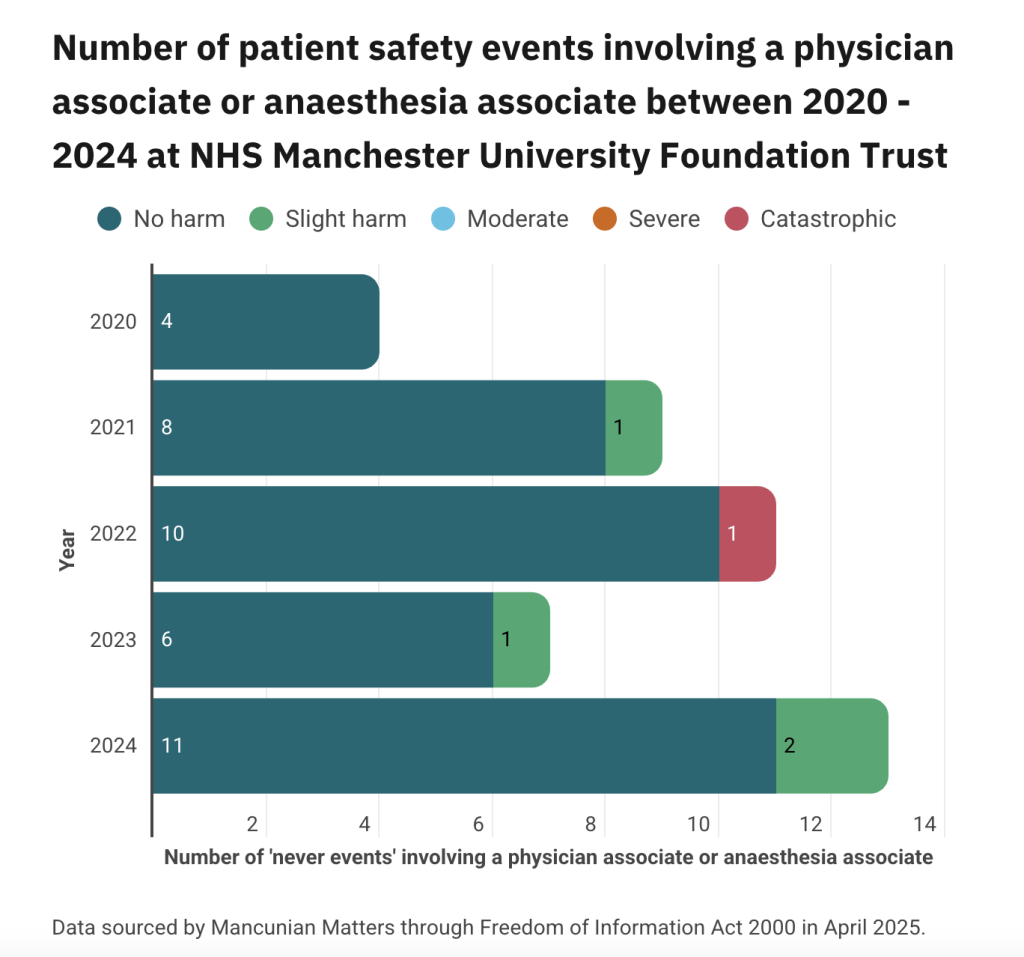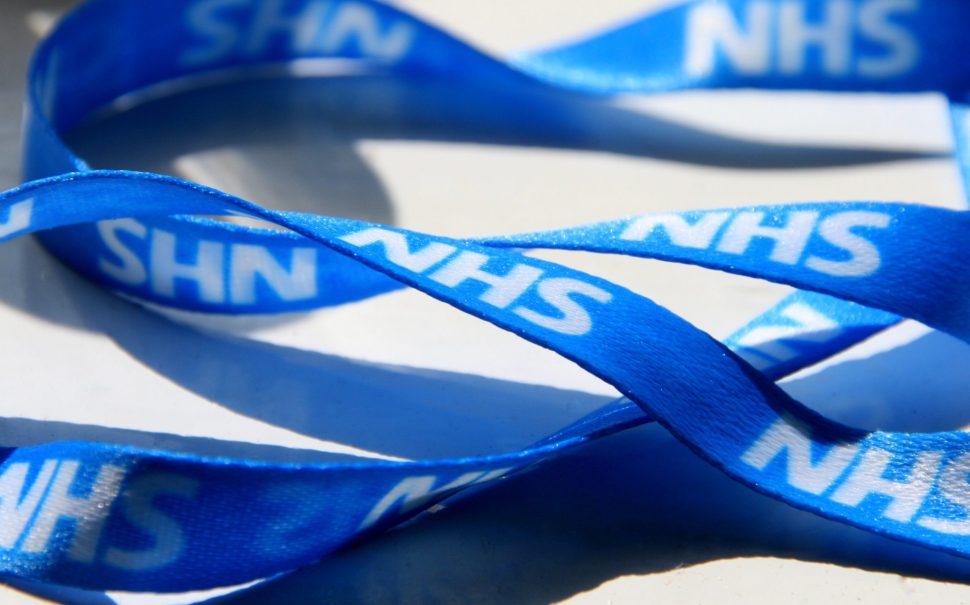Manchester University NHS Foundation Trust had 44 patient safety incidents involving a physician associate (PA) or anaesthesia associate (AA) in the last five years, with almost half of those occurring in the last two years, data from a freedom of information request has revealed.
These incidents are classified by the NHS as patient safety events which are serious, largely preventable patient safety incidents that should not occur if healthcare providers follow established guidelines and safety recommendations, according to NHS England.
And this rise in patient safety events comes as the role of PAs and AAs in UK hospitals has been met with increased scrutiny, and more reports are made over unauthorised practice and high-profile cases of negligence and misconduct.

Mancunian Matters would like to clarify that in the FOI, Manchester University NHS Foundation Trust has interpreted the term ‘involved’ to mean where a PA or AA has been directly or indirectly mentioned with the incident, either as a witness or actively involved in care and treatment prior, during or after the event. This could be as a witness to the incident, the person reporting the incident, or someone actively involved in care and treatment prior, during or after the event.
There is a scale of patient safety events that range from no harm, slight and moderate harm, to severe harm, and catastrophic – which means a patient has died.
There have been four patient safety events that have resulted in slight harm, and one that was categorised as catastrophic.
A review has taken place this year to assess the role of PAs and AAs, following years of urgent calls from the medical sector about issues from patient safety to fears that PAs were replacing doctors.
Dr Matthew Kneale from Doctors Association UK, who have campaigned for the review alongside a halt to expand the workforce, said: “The review presents a critical opportunity to address the serious concerns raised by frontline doctors regarding the deployment of medical associate professionals within the NHS.”
With the second largest number of the workforce in the UK, the NHS trust, alongside the University of Manchester, continues to train and hire PAs and AAs.
PAs and AAs, of which there are around 4,500 in total and with plans to triple the number to 10,000 by the mid-2030s, are healthcare professionals who work under the supervision of a doctor to provide medical care and support to patients.
The profession was first introduced to the UK in 2003 as a response to staffing shortages, and was initially known as a ‘physician’s assistant’, before changing to ‘physician associate’.
The summary of the review has made recommendations to change the name again, following significant evidence of patients being misled by the name, misconceiving PAs to be doctors.
This decision was welcomed by Doctors Association UK, but warned this did not address the fundamental issues of scope and supervision.
Dr Ellen Welch, DAUK’s vice chair and a GP, said: “This is a start but we still need to define scope of practice.
“We also need to address the doctors’ concerns around supervision and who is responsible for these assistants and their work.”
PAs have been implicated in several high-profile patient deaths. Last year, 77-year-old Pamela Marking died following a misdiagnosis of a nose-bleed when she had a small bowel obstruction and hernia, requiring emergency surgery.
The coroner’s report concluded that the term “physician associate” was “misleading to the public” and that there was a “lack of public understanding of the role”.
Emily Chesterton, 30, from Salford, died after a PA misdiagnosed a blood clot on two occasions.
The Royal College of GPs has since declared that there was “no role” for PAs in GP surgeries.
A Department of Health and Social Care source told the Guardian: “It’s clear there’s a legitimate problem of patients not knowing who they are seen by, which is their basic right. It is likely the review will make recommendations to address this problem, including changing the titles of PAs.”
In March, a review by the University of Oxford found there was limited evidence to suggest patient care was improved under physician associates and that there was a severe lack of research to back up the use and planned expansion of PAs and AAs in the NHS.




